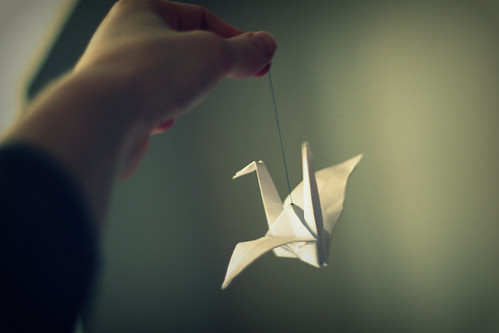
JNET: "Listen for your mistakes. You're to see if you can find them first and fix them before I must point them out to you."
XYZ: "Why don't you just stop me right away if I make a mistake?"
JNET: "I think it is a slower way to learn; to stop at every single mistake."
If we were to stop at every single mistake then I wouldn't be able to point at a pattern of mistakes. And yet it happens, my student will play a sequence of notes and then hit a screaming halt where we listen in silence; their big eyes staring at me for direction and validation.
JNET: "You know how to read music. Read the note."
Sometimes the students stares further, begging for a quick answer. The gap of silence grows and I sit with it. I don't care. Thinking shouldn't have to be something awkward to be avoided. I invite my student to think. I have to get literal on them. Tell them to look at the paper and think. I also raise a paper to cover my face.
XYZ: "Just tell me!"
JNET: "That would be too easy. You know how to get to the answer and you want me to support you to be lazy. Come now. You are not a lazy person. Are you? Anyway, stop staring at me for the answer. Are there notes on my face?"
It takes a lot of patience to listen to mistakes. Teaching a student to be patient with their own self so that they can anticipate where their mistakes comes from is a lesson on self-awareness that a 6 year old can grasp yet a 16 year old may stumble over.
XYZ: "Wait... wait... don't tell me. I got it under control."
JNET: "Sure you don't want me to point to the notes for you."
XYZ: "No pointing! I can handle this."
Sweet words from a mindful student. If you can listen to yourself and modify mistakes. If you can think for yourself and master a new piece, what in life can stop you for expressing something beautiful and on purpose?
There more to music lessons than notes.
JNET
"Should we listen for "mistakes," or should we listen for ways to make things better? Is a "mistake" anything less than a learning experience? Does the word "mistake" have a negative connotation? Is a "mistake" anything less or more than not doing something the way one is told to do it regardless of the reason one did not do it that way? OK, too many questions - - -"
ReplyDeleteHK
Hk... Interesting questions...
ReplyDeleteWe ought to both listen for our mistakes and listen for ways to improving our respective disciplines. in my case, i was referring to conversations that revolved around reading. i have my students sightread new material every week.
"Mistake" does not have a negative connotation nor needs to. If you must get fluffy with meaning then you can interchange with using "false note" in place of "mistake" or if the student was "elaborating" I do give space for that and then return to ask them afterwards if they could please play again as notated just to check on their reading accuracy.
A mistake is simply playing something that was not intended... playing notes that are tied and that need to be held... forgetting an accidental or simply getting fingering all tangled up on the keys when there is an easier and graceful way to go about playing.
in essence, the way to making things better is to identify what can be improved. And it is a good habit to get our students into without giving it a connotation of good or bad.
The faster a student can develop their self reliance to practice well and independently, getting over emotional judgments over black dots on a paper, able to plod through a piece and identify their challenging spots, the more they will be able to enjoy the practice of practicing... which is a process that asks that we not take our "mistakes" as a negative.. but simply identify what is specifically there and fix what doesn't seem to fit in the pattern.
They grow their value toward accuracy, iintention and appreciate artistic interpretation. But most of all learn that mistakes are just actions that missed a mark that are easily fixable. :)
jnet
Thank you for such a thoughtful response.
ReplyDeleteIs it possible that one is not executing as instructed because that one is not yet experienced enough to be able to follow those instructions?
Again, if not yet able to execute such an instruction, is it a "mistake," or something else? Best to you - -
HK
HK.
ReplyDeleteI think it is a "mistake" or "mis-step" "or miscalculation" when there is a sure target... a D written as a D must be played as a D, a triplet must be played as notated, and if the score asks for ritardando... you must slow down.
If my student does not hit the target, we must get clear if they not understand the target or language of what is being asked and set them into the right direction.... See More
It is the fault of the teacher if the student continues not understanding enough so that they may have a productive practice on their own.
It is possible that they understand the concept and can semi-execute the target... but due to psycho-motor skills still need further practice and muscle memory to play what they mean to play.
My student would recognize that and communicate that to me. if they cannot play their best yet, they are thinking their best in the meantime.